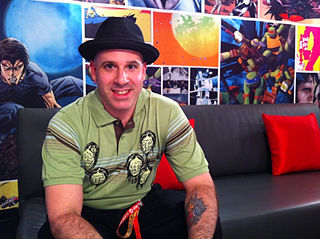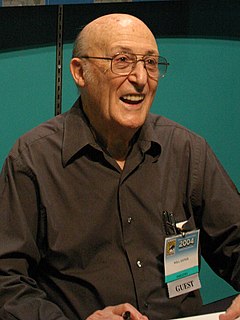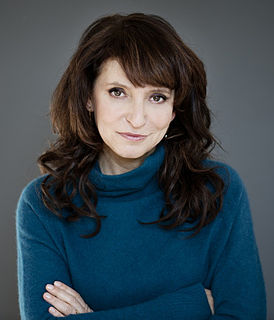A Quote by Greg Rucka
There is a sequence in my 'Detective Comics' run where you can't find consecutive issues by the same artist. That's intentional. That was done on purpose.
Related Quotes
I got into comics about the same time as music. By 12 years old, I had discovered my dad's killer comic book collection filled with Silver Age books from his youth...early Spider-Man, Thor, Fantastic Four, The Hulk, Detective Comics, Action Comics, you name it. Seeing those old books got me interested in new comics, so my friends and I would hit the local comic shop every Saturday to pick up the cool titles of my generation.
The average detective story is probably no worse than the average novel, but you never see the average novel. It doesn't get published. The average -- or only slightly above average -- detective story does.... Whereas the good novel is not at all the same kind of book as the bad novel. It is about entirely different things. But the good detective story and the bad detective story are about exactly the same things, and they are about them in very much the same way.
Comics are a "young" art form, and there is much confusion as to how to treat them. Images have more immediate impact than words, and it is not every reader who can be convinced to relax into experiencing the work for what it is - not words and pictures, but a different form, where the narrative is propelled by the blending of image, word and sequence, and where no element can be extricated and have the same meaning by itself. When this art is shown in a gallery, its "thingness" is called to attention, it is no longer experienced as "story," but rather as an artifact of the artist's process.
I have been a comic book fan nearly all my life. My fascination began as a refuge after my father left because it was within the stories told in comics that I could find heroes who fought for justice and where outcasts or misfits could find purpose and commonality. But over time I have come to love comics as a medium for its ability to tell stories with tremendous depth and emotion that in some ways go beyond what is possible solely with the written word.
A detective novel should contain no long descriptive passages, no literary dallying with side-issues, no subtly worked-out character analyses, no 'atmospheric' preoccupations. Such matters have no vital place in a record of crime and deduction. They hold up the action and introduce issues irrelevant to the main purpose, which is to state a problem, analyze it, and bring it to a successful conclusion. To be sure, there must be a sufficient descriptiveness and character delineation to give the novel verisimilitude.
Still,[...] in all forms of comics the sequential artist relies upon the tacit cooperation of the reader. This cooperation is based upon the convention of reading and the common cognitive disciplines. Indeed, it is this very voluntary cooperation, so unique to comics, that underlies the contract between artist and audience.
The funny thing is that the process of coming up with an idea for a column or a 'Candid Camera' sequence is essentially the same thing. I just live my life with eyes and ears perhaps a little bit wider open than some people. Whatever bothers me or seems off kilter or in need of parody-or on a serious subject, in need of examination-in the past I had done a sequence about it. Now I write a column about it.






































